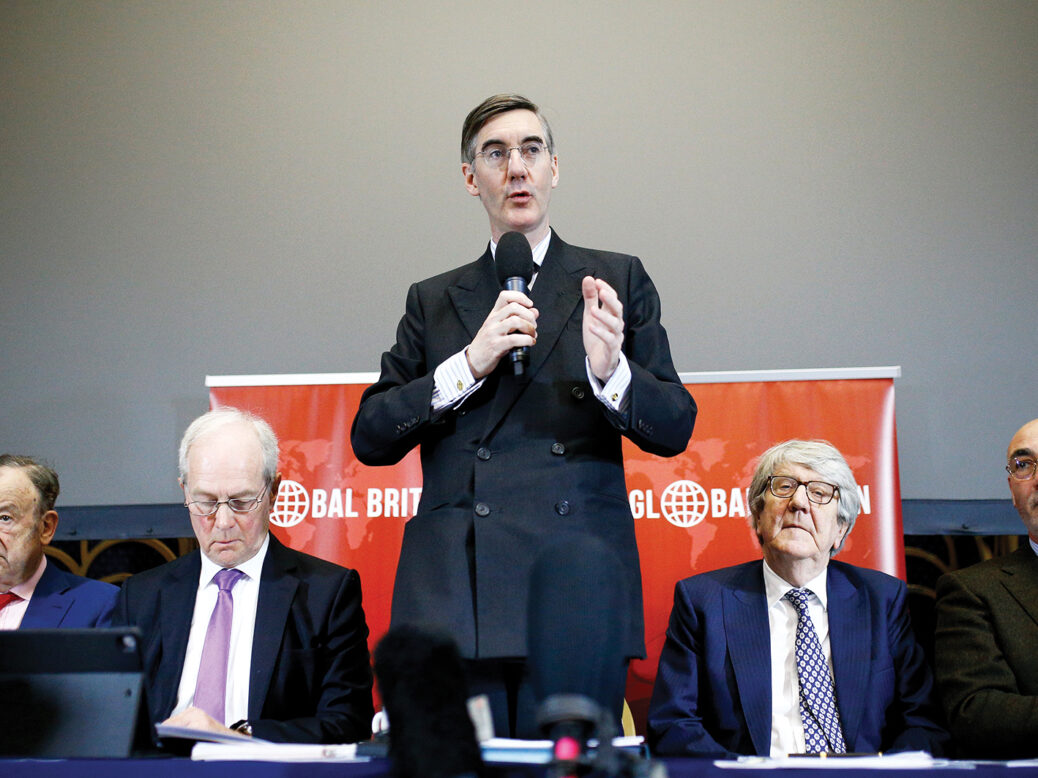
Ideology is destroying us. We are now ruled by the ideological 1 per cent – the members of the two main parties. The power of the European Research Group (ERG) rests on their majority among the Conservative geriatrics; the power of the Leninists rests on its majority among Labour’s Youthful Idiots. Those of us in the 99 per cent, who see a diminishing distinction between being committed to either of these parties and being committed to an asylum, are told that this is more “democratic”. As the ideology of the ERG has guided Britain relentlessly on to the rocks, Leninist ideologues have salivated at the prospect of a capitalist crisis. The media are trapped in futile disputes over which option among the grim menu offered by the European Commission is the least awful. Remainers dream of a rerun of the 2016 referendum; Theresa May plays for delay in the hope of capitulation to her wretched deal; and the populist media howls about betrayal. Ideology reliably leads to ruin and we now face it. Yet the UK could still pull off a great escape.
Step one: recognise that Brexit was a mutiny against London, not Brussels.
For four decades, gaps in income and respect have been widening between the provinces and the metropolises. They have been compounded by a further gulf in income and respect between the less-educated and the more-educated. Since the highly educated are concentrated in the metropolises, these rifts are becoming coincident. Well-educated metropolitans often rail against their less fortunate fellow citizens but have become economically and socially detached, and this is bitterly, and understandably, resented.
Both political parties owe an abject apology to those at the wrong end of this divergence for their prolonged failure to address it. What provincial Britain needs is not bigger benefits, but jobs that are more productive: people attain dignity from being sufficiently productive to contribute to society. The task of economic policy is to humanise the economic forces of globalisation so as to bring productive opportunities to people.
Achieving it is entirely feasible: after 1989, the German economy was run with the objective of narrowing spatial inequalities and, even within Britain, Edinburgh became a growth pole thanks partly to the happenstance of political devolution. But restoring the prosperity of broken cities will be costly: the money should come from taxing the economic rents of metropolitan agglomeration currently captured by London’s high-earners, its landowners and those sitting on large capital gains from property. London is the new oil, and it belongs to all of us.
But economic policy is not enough. We need a radical shift in the mentality of government from the authoritarian centralism of targets and controls beloved of New Labour, which the Leninists would surely intensify. In its place we need to empower the local governments, families and firms whose role is essential in building the long chain through which a baby evolves into a productive and ethical citizen: well-educated, well-trained, well-housed and purposefully employed. Other societies manage this much better than Britain does.
Step two: revoke Article 50.
Article 50 was designed (by a clever British civil servant of yesteryear) so as to strip any country wanting to leave of all negotiating power. Extending it does not help Britain: since delay needs the approval of all 27 EU member states, its position as a supplicant becomes even weaker. But if Britain does revoke it, which it can do unilaterally, following the European elections in May we will find our position transformed. The new EU commissioners will be appointed by horse-trading. Since Germany is at odds with France and Italy, and eastern Europe at odds with both of them, Britain will hold the balance of power in significant respects. If I were to turn it into a phrase, I would say we would be “taking back control”.
Step three: use that power
We will have power, so how should we use it? The primary objective should be to move the EU in the direction that both Britain and poorer European countries need. We should hold out for a commitment that the new commission will do whatever it takes to reverse the economic divergence of rich regions from poor ones. This is likely to win a majority: it would be embarrassing for the German or French governments openly to oppose it. If we succeed, the government should present the choice of participating versus leaving in a new referendum. If it fails to win, we can redeploy our bargaining power to get reasonable terms for exit.
This course of action lays the blame for the present nightmare squarely on May’s reckless decision to invoke Article 50 before knowing what would be feasible. The inevitability of impending catastrophe was clearly signalled by the resignation in January 2017 of Ivan Rogers, our top civil servant in Brussels. By sidestepping the currently irresolvable question “Remain or Leave?”, it offers a credible strategy around which both the Remainers and the Leavers in Labour could unite with an easy conscience.
Paul Collier is professor of economics and public policy at the Blavatnik School of Government, Oxford University, and author of “The Future of Capitalism: Facing the New Anxieties” (Penguin)





